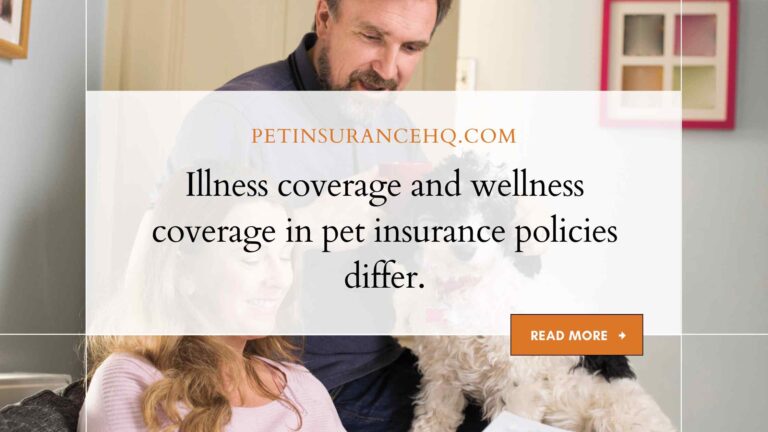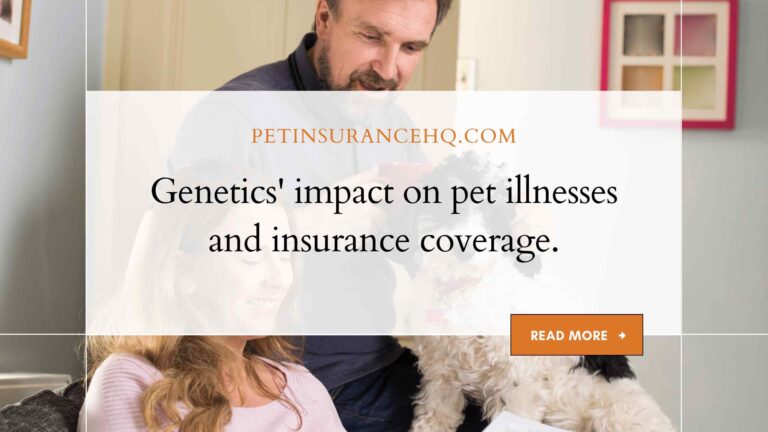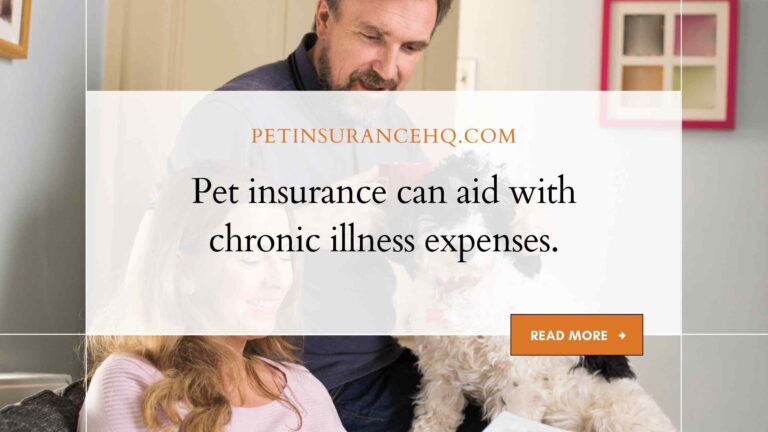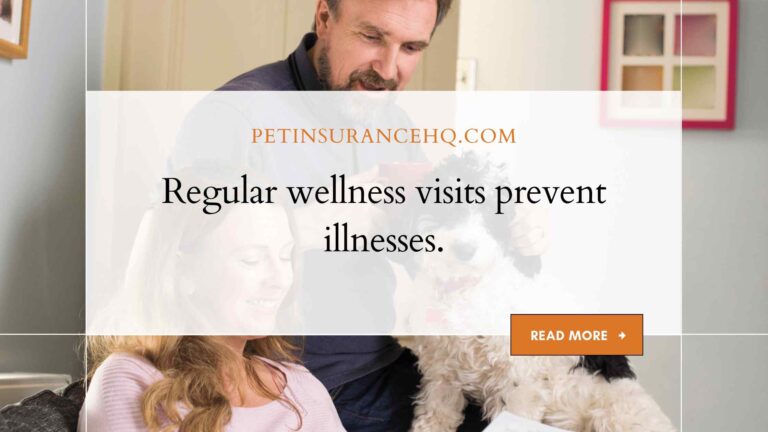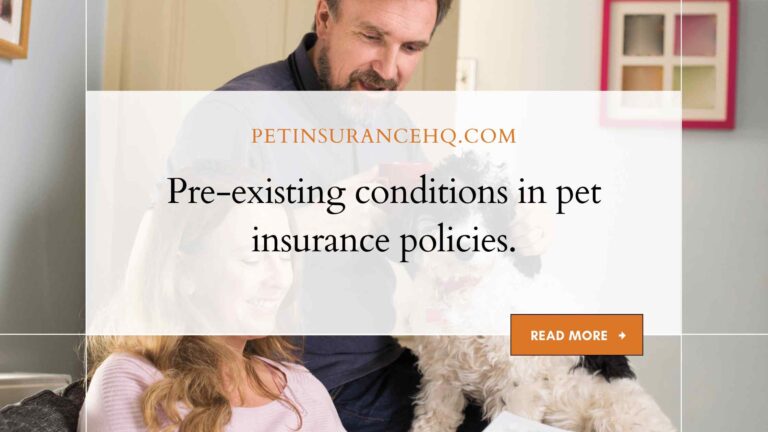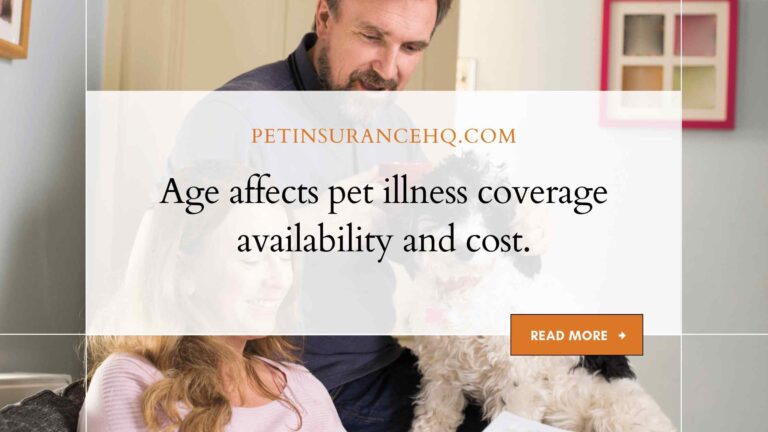The importance of illness coverage in a pet insurance policy
Your furry friend is an important member of your family, and like any other loved one, they deserve to receive the best medical care possible. Unfortunately, pets can fall ill unexpectedly, leaving you with steep veterinary bills that can be challenging to pay off. That’s where pet insurance comes in. While many plans offer coverage for routine care and accidents, it’s essential to consider illness coverage as well.
In this blog post, we’ll explore the importance of including illness coverage in a pet insurance policy and how it can benefit you and your four-legged companion. So grab a cup of coffee and let’s dive in!
Introduction
As a pet owner, it’s important to make sure your furry friend is well taken care of – and that includes having the right insurance coverage.
One of the most important aspects of a good pet insurance policy is coverage for illnesses. No one wants to think about their pet getting sick, but it’s a reality that many pets face. And vet bills for even minor illnesses can be expensive.
With illness coverage from a good pet insurance policy, you can rest assured knowing that your pet will be covered in the event of an illness. This can give you peace of mind and help you budget for your pet’s care.
So, if you’re looking for a good pet insurance policy, make sure it includes coverage for illnesses – it could be the best decision you ever make for your furry friend.
Exploring the different types of pet insurance policies and the features they offer can help you find the coverage that’s right for your pet. Many pet insurance companies offer customizable plans, so you can choose only the coverage you need, such as illness and accident coverage, preventive health care, flea and tick treatment, vaccinations, behavioral trainings, and more. Some insurance companies also provide additional services like telemedicine consults with licensed veterinarians to help diagnose and treat common ailments in pets.
What is Pet Insurance?

As a pet owner, it’s important to consider every aspect of your animal’s care – and that includes their health. Many people don’t realize that pet insurance policies can include coverage for illnesses, which can be vital in the event of an unexpected medical emergency.
Here’s what you need to know about pet insurance and illness coverage:
What is pet insurance? Pet insurance is a type of policy that helps cover the cost of your animal’s medical care. It can help with things like routine check-ups and vaccinations, as well as more serious problems like accidents or illnesses.
What does illness coverage usually include? Most pet insurance policies will cover the cost of treatment for illnesses, including both diagnostic tests and treatment itself. Some policies will also cover the cost of prescription medications.
What isn’t usually covered by illness coverage? Unfortunately, pre-existing conditions are almost never covered by pet insurance policies. That means if your animal becomes ill before you get a policy in place, their treatment likely won’t be covered.
Types of Pet Insurance Policies
There are generally two types of pet insurance policies: comprehensive and accident only. A comprehensive policy will cover both illness and accidents, while an accident only policy will only cover accidents.
Some policies will cover preventive care, such as vaccinations and routine check-ups. Others will exclude preventive care and only cover sick or injured pets.
Some pet insurance policies will reimburse you for the actual veterinary bill, while others will reimburse you based on a schedule of benefits. Make sure to read the fine print of any policy you’re considering to see what type of coverage it offers.
Why Illness Coverage Matters in Pet Insurance Policies
As a pet owner, it’s important to be prepared for anything. That’s why having illness coverage in your pet insurance policy is so important.
It’s estimated that about one in every three pets will experience an illness or injury during their lifetime. And while we hope our furry friends never have to face any health problems, the reality is that accidents and illnesses can happen at any time.
Pet insurance can help take some of the financial worry out of unexpected vet bills. With illness coverage, you’ll be reimbursed for a portion of your vet bills (up to a set limit) if your pet becomes ill or injured. This can give you peace of mind knowing that you won’t have to bear the entire cost of unexpected veterinary care on your own.
And if your pet needs ongoing treatment for a chronic condition, having illness coverage in place can help ensure that you’re able to continue providing them with the best possible care.
So, if you’re looking for comprehensive protection for your beloved pet, make sure to choose a policy that includes coverage for illnesses and injuries. It could make all the difference for your furry friend in their time of need.
What to Look for When Shopping for a Pet Insurance Policy
When looking for a pet insurance policy, it is important to consider what coverage you need. Some policies will only cover accidents, while others will also cover illnesses. It is important to consider whether you want coverage for your pet’s routine care, as this can be expensive. You should also look at the policy limits and deductibles to make sure they fit your budget. It is important to read the fine print and make sure you understand the exclusions and limitations of the policy.
Finally, it is important to review the company’s customer service and financial ratings. Many companies offer reviews from other customers so you can get a better sense of what their service is like.
Cost Comparison of Different Pet Insurance Options
There are a variety of pet insurance options available on the market, and it can be difficult to determine which one is right for your pet. It’s important to understand the different types of coverage available and how they can impact the cost of your policy.
One important factor to consider is whether or not the policy covers illness. Some policies only cover accidents, while others include coverage for both accidents and illnesses. Illness coverage is important because it can help to offset the cost of unexpected medical bills.
Another factor that can impact the cost of your pet insurance policy is the deductible. A higher deductible will generally result in a lower premium, but it means that you’ll have to pay more out-of-pocket if your pet needs medical care. You’ll need to balance your budget with your pet’s needs when choosing a deductible amount.
Consider the reimbursement level when comparing pet insurance policies. The reimbursement level is the percentage of your vet bill that the insurance company will cover. A higher reimbursement level will mean a higher premium, but it can also save you money if your pet requires extensive medical treatment.
When deciding which pet insurance policy is right for you, be sure to compare the costs and coverage options carefully. By understanding the different factors that can impact the cost of a policy, you can make an informed decision that’s best for both you and your furry friend.
Tips to Get the Best Mix of Price and Coverage
Pets are susceptible to a number of illnesses, some of which can be very expensive to treat. As such, it’s important to make sure that your pet insurance policy provides adequate coverage for illness. Here are a few tips to get the best mix of price and coverage:
- Shop around and compare pet insurance policies before buying. Be sure to read the fine print and understand what each policy covers.
- Choose a policy with a high coverage limit for illness. This will ensure that you’re covered in the event of a serious or expensive illness.
- Consider adding on rider coverages for things like cancer treatment or prescription medication. These can help offset the cost of treating a serious illness.
Conclusion
Taking out an illness coverage policy for your pet can help ease financial strain should they become ill and require medical attention. It may also provide additional benefits such as covering preventative treatments or follow-up appointments that could improve the quality of life for your pet. Ultimately, if you’re going to be a responsible owner it’s well worth researching the range of policies available to make sure your beloved animal is adequately covered.


